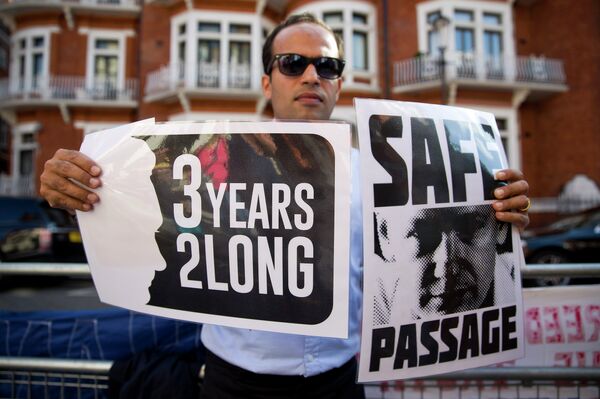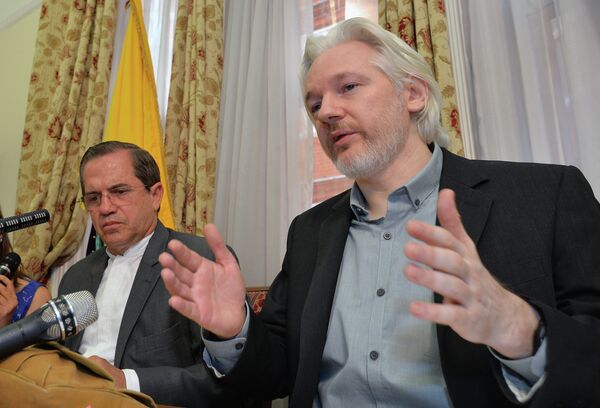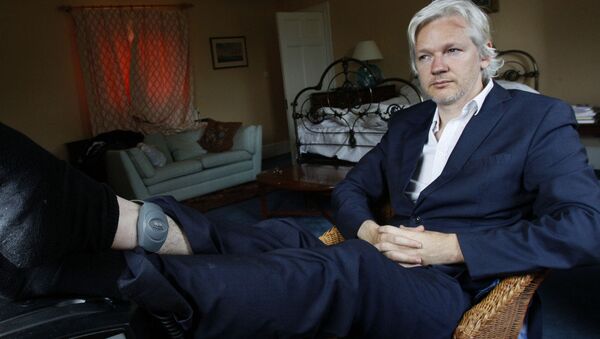Ecuadorian representatives announced they had come to an agreement for Assange to be questioned over rape allegations, after Swedish officials formally requested permission to interrogate the 44-year-old Australian in the Ecuadorian embassy in London, where he has been living since June 19, 2012.
"We will cooperate with the Swedish authorities so they can take some statements. We have said that from the beginning," Ecuadoran Foreign Minister Ricardo Patino said in an interview with website Ecuadorinmediato.
Patino said the questioning would take place under Ecuadorian law, as Assange "is under our country's jurisdiction."

Despite not being clear on "exactly what the procedure is" Patino said the questioning would be undertaken by Ecuadorian prosecutors, however their Swedish counterparts could also be present.
How can Sweden pretend any credibility when its last 34 out of 38 press releases are about someone not even charged https://t.co/dD7xH2JlhE
— WikiLeaks (@wikileaks) January 13, 2016
Assange has not left the embassy since applying for Ecuadorian political asylum in June 2012, which he was granted two months later.
The Australian, however, has been unable to travel to the South American country, after the UK announced that it would not grant the 44-year-old safe passage should he step outside the embassy, adding that they would extradite him to Sweden.

Swedish authorities are pursuing Assange over a rape allegation, while a further sexual assault probe was dropped after the five-year statute of limitations expired.
The Australian has denied the allegations, saying all sexual encounters were consensual.
He has accused Sweden of pandering to US interests, and has refused to travel to Sweden for questioning amid fears he may be extradited to the US, who have been investigating him over the publishing of hundreds of thousands of classified US military and diplomatic documents.
Ecuadorian foreign minister Patino also questioned Sweden's handling of the situation, asking why it had taken Stockholm "so long" to agree to question Assange under Ecuadorian law.
"We believe there really is a process of persecution" against Assange, he said.
In March, Swedish prosecutors dropped their demand to question the WikiLeaks chief in Sweden. However, officials didn't sign an agreement on general cooperation with Ecuador until December.


